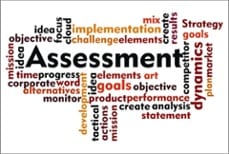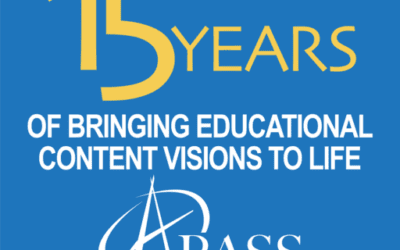In a recent research report, assessment giant Pearson acknowledged that there have been problems with assessment up until now, but Pearson remains positive about the future. In the report, titled Preparing for a Renaissance in Assessment, authors Peter Hill and Michael Barber note that many of the historic problems with assessments can be, or are being, solved (Hill and Barber, 8) in what are called “next-generation learning systems. (7)” You can read the entire report here, but I’d like to focus on the five assessment “ideals” identified by Hill and Barber and how they believe new thinking and technologies will get us closer to those ideals than ever before.
Ideal #1: Assessments can accommodate the full range of student abilities
A common complaint about most large-scale assessments has been that they tend to be less accurate at the upper and lower distribution “tails,” and thus tell us little about struggling students or extremely capable students. Typically states or schools have attempted to solve this problem by using multiple assessments, which is a cumbersome and expensive solution. As assessments move online, schools and states are able to use adaptive assessments, in which each student response to an item guides them to easier or more difficult items until their exact achievement level can be determined (8).
Ideal #2: Assessments provide meaningful information on learning outcomes
The typical state report might be overly focused on grades or grade levels that tell teachers little about what individual students know and are able to do. The timing of the assessments–usually toward the end of the school year, again for purposes of assessing grade-level content, is too late in the year to be actionable. Finally, the generation of a single score and its distance from a “cut-score” reveals little about individual students. Again, Hill and Barber point to the efficacy of online testing environments to provide multiple assessment forms, real-time score reporting, and deeper analysis of scores and subscores for a fuller picture of individual students’ abilities (8).
Ideal #3: Assessments accommodate the full range of valued outcomes
Assessments have tended to be written and used to assess lower-level skills and knowledge, leaving as unassessed higher order thinking, project work, listening, and speaking skills, which are identified by Hill and Barber as extremely valuable “21st century skills.” (5) Hill and Barber observe that new technologies are enabling automated essay grading and other open-response formats (8), and new technology-enhanced items (TEI) are highly interactive and encourage a new range of response types.
Ideal #4: Assessments have integrity and are used in ways that motivate improvement efforts and minimize opportunities for cheating and ‘gaming’ the system
Several high profile cases show that some administrators and teachers are not immune to the temptation to manipulate scores and “help” students during and after testing. Hill and Barber believe that more frequent lower-stakes formative assessment and accountability systems that rely on more than a single measure of performance will mitigate these problems (8).
Ideal #5: Assessments support students and teachers in making use of ongoing feedback to personalize instruction and improve learning and teaching
Summative assessment practices that emphasize a win/lose dynamic are de-motivating to struggling students and provide little to no opportunity for improvement. Hill and Barber note the growing use of formative assessments as a way to provide frequent feedback and encourage improvement (8).
Thoughts?
(A Pass Educational Group has worked with state assessment leaders and publishers to build assessment items, including TEIs, and is proud to be a part of the Renaissance in assessment. Let us know your thoughts.)
References
Harris, Elizabeth A., and Ford Fessenden. “‘Opt Out’ Becomes Anti-Test Rallying Cry in New York State.” New York Times, 20 May 2015. Print.
Hill, P., and M. Barber Preparing for a Renaissance in Assessment. London: Pearson, 2014. Print.




